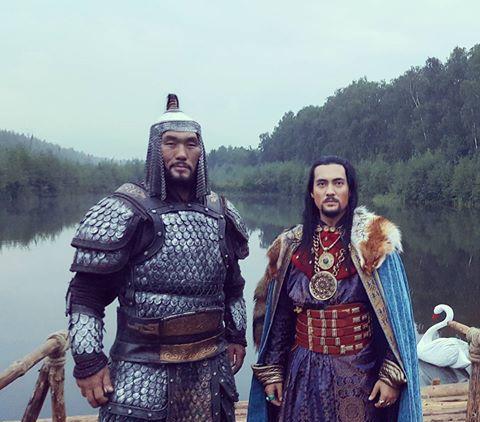In Central Asia in the fifteenth century, there was a very learned Mongol Khan, who was the monarch of the Eastern Chagatai Khanate, Yunus Khan, who was fluent in Persian, Turkic and Arabic, and was well versed in poetry and literature, so historians called Yunus Khan the most learned Mongol of his time.

Born in 1416 AD, Yunus Khan was a descendant of Genghis Khan's second son Chagatai, who, after the end of genghis Khan's Western Expedition, gave land in the Central Asian and Ili River valleys to his second son Chagatai, where he founded the Chagatai Khanate, one of the four great Mongol khanates. Soon after its establishment, the Chagatai Khanate split into two states, the Western Chagatai Khanate was later conquered by Timur the Great, and the Eastern Chagatai Khanate continued until the beginning of the sixteenth century, when Yunus Khan was born into the royal family of the Eastern Chagatai Khanate.
When Yunus Khan grew up, he began to compete with his brother Yixian for the Khan's throne, only to be defeated by Yixianbuhan, and Yunus Khan fled to Samarkand, the capital of the Timurid Empire, under the protection of his cronies. At that time, the ruler of the Timurid Empire was named Ulugh Bab, who was timur's grandson, and Ulugh Bo welcomed the arrival of Yunus Khan, and found him the most famous local scholar, Sherifudin, to teach Yunus Khan knowledge and culture, and Yunus Khan was a student of Sherifudin for twelve years.
Later, Yunus Khan returned to the Eastern Chagatai Khanate with the help of Ulugh Rub, and then successfully seized the Khan's throne, but the Mongol herders of the Eastern Chagatai Khanate found that Yunus Khan was no longer a Mongol. After more than a decade of exile, Yunus Khan began to move closer to the settled peoples of Central Asia in both clothing and language, dressed in the traditional costumes of the Tajiks, speaking pure Persian, and loving poetry and literature, and the Mongolian herders at that time called him Master Yunus.
At that time, a scholar named Mahema learned that Yunus Khan was a learned man, so he planned to visit Yunus Khan, and later he met Yunus Khan at the recommendation of a minister of the Eastern Chagatai Khanate, but after seeing Yunus Khan himself, MaHema sighed to the minister next to him: "He is not a Mongol, he is obviously a Tajik." ”
The reason why Mahema thought that Yunus Khan was not Mongol was because the Mongols in Central Asia at that time rarely had beards, so Mahema concluded that Yunus Khan did not have a beard, and when he met Yunus Khan, he found that Yunus Khan had a thick beard, wore traditional Tajik clothing, and insisted on speaking Persian, and was very similar to the Tajiks in words and deeds, which led Maheima to mistakenly believe that Yunus Khan was a Tajik.
Yunus Khan's change was undoubtedly a microcosm of the Mongol scholars in Central Asia at that time, and later Yunus Khan tried to take the nomadic Mongols to the path of settlement, trying to teach them knowledge and culture, but in the end it failed. In his later years, Yunus Khan was opposed by the conservative Mongol nobles, who imprisoned Yunus Khan and then elected Yunus Khan's son as the new Khan, simply because this son of Yunus Khan liked the traditional nomadic life.